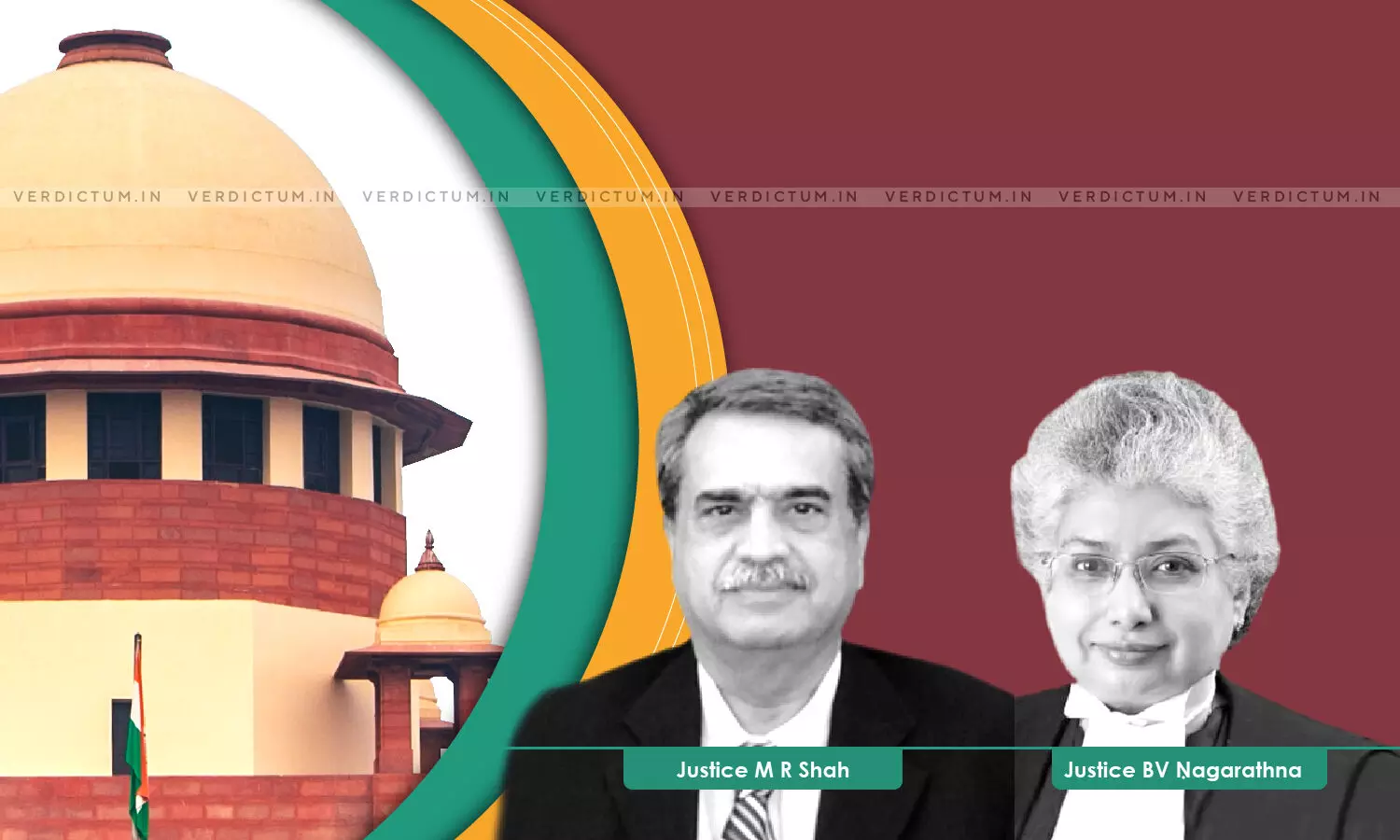
Case Falls Under Clauses Thirdly And Fourthly U/s. 300 IPC - SC Reverses HC's Order, Sentences Accused To Life Imprisonment
 |
|The Supreme Court bench comprising of Justice M. R. Shah and Justice B. V. Nagarathna while holding that in facts and circumstances of the case the High Court committed a grave error in observing that this was a case of culpable homicide not amounting to murder by applying the exception Fourth to Section 300 IPC has opined -
"...the accused gave several blows/multiple blows on the vital part of the body – head which resulted into grievous injuries and he used "Phakadiyat" with such a force which resulted in Skull fracture and a frontal wound on left side and wounds with 34 stitches on the left side of the skull extended from mid of the left side of the skull along with coronal sutures of 16 cm, we are of the opinion that the case would fall under Clauses thirdly and fourthly of Section 300 IPC."
The Apex Court was hearing an appeal which was preferred by the State of Uttarakhand in which the Respondent was charged and tried for the offence under section 302 IPC for having committed the murder. It was the case of the State that during a Mehendi ceremony, the entire village participated including the deceased and the accused. Some altercations took place between the deceased and the accused but due to the intervention of the villagers, the matter did not proceed further.
The second incident took place at about 12 in the night when the accused attacked the deceased with a phakadiyat which he was carrying and gave him blows which landed on the head of the deceased. The deceased ran towards his house and was followed by the accused with the phakadiyat. The deceased had suffered multiple injuries on the head which resulted in a skull fracture and a frontal wound on the left side.
After his death, the wife of the deceased filed an FIR and the police investigated the matter and filed a chargesheet against the accused of the offence punishable under Section 302 IPC.
The matter was tried before the Trial Court and the Court convicted the accused under section 302 and imposed the sentence of life imprisonment.
The accused preferred an appeal against the judgment of the trial court before the High Court where the High Court by the impugned judgment held that it was a case of culpable homicide did not amount to murder, solely on the ground that it is not a cold-blooded murder; rather it is a sudden fight which ensued in the heat of passion between the two; as a result of a sudden quarrel in the marriage ceremony and that the weapon used was "Phakadiyat" which is a rough piece of wood and therefore it cannot be said that there was any intention on the part of the accused to kill and/or commit the murder of the deceased and therefore the case would fall under the Fourth exception to Section 300 IPC. After holding so and after altering the finding of murder to one of culpable homicide not amounting to murder, the High Court had converted the sentence from life imprisonment to ten years rigorous imprisonment.
The Supreme Court while referring to the facts of the case held that the High Court erred in observing and/or accepting the case on behalf of the accused that the incident had taken place due to a sudden fight in the heat of passion upon a sudden quarrel in the Mehendi ceremony.
The Court further observed, "The second incident had not taken place at all during the mehendi ceremony. The second incident had taken place near the house of the deceased and that too after the first incident was over, everybody went to their houses and thereafter at 12:00 in the mid night the second incident had taken place in which the accused gave several blows to the deceased by "Phakadiyat" on the head, thigh etc. Therefore, the High Court has erred in observing that the case would fall under Fourth exception to Section 300 IPC."
The Court also noted that the High Court did not even properly appreciate and consider the multiple injuries sustained by the deceased.
Further, the Bench relied upon several precedents on the point whether culpable homicide would tantamount to murder or not and held, "..the High Court has committed a grave error in observing that culpable homicide did not amount to murder, by applying exception Fourth to Section 300 IPC."
"As observed hereinabove, exception Fourth to Section 300 IPC ought not to have been applied by the High Court at all considering the fact that the main second incident had taken place subsequently at 12:00 in the night, much after the first incident of altercation was over in the mehendi ceremony. The impugned judgment and order passed by the High Court is unsustainable both, on facts as well as on law," the Bench opined.
Accordingly, the Court allowed the appeal and set aside and quashed the impugned judgment of the High Court altering the finding of murder to one of culpable homicide not amounting to murder and consequently converting the sentence from life imprisonment to ten years rigorous imprisonment.
The Court found the accused guilty of offence under Section 302 IPC and was sentenced to undergo life imprisonment, thereby restoring the judgment of the Trial Court.